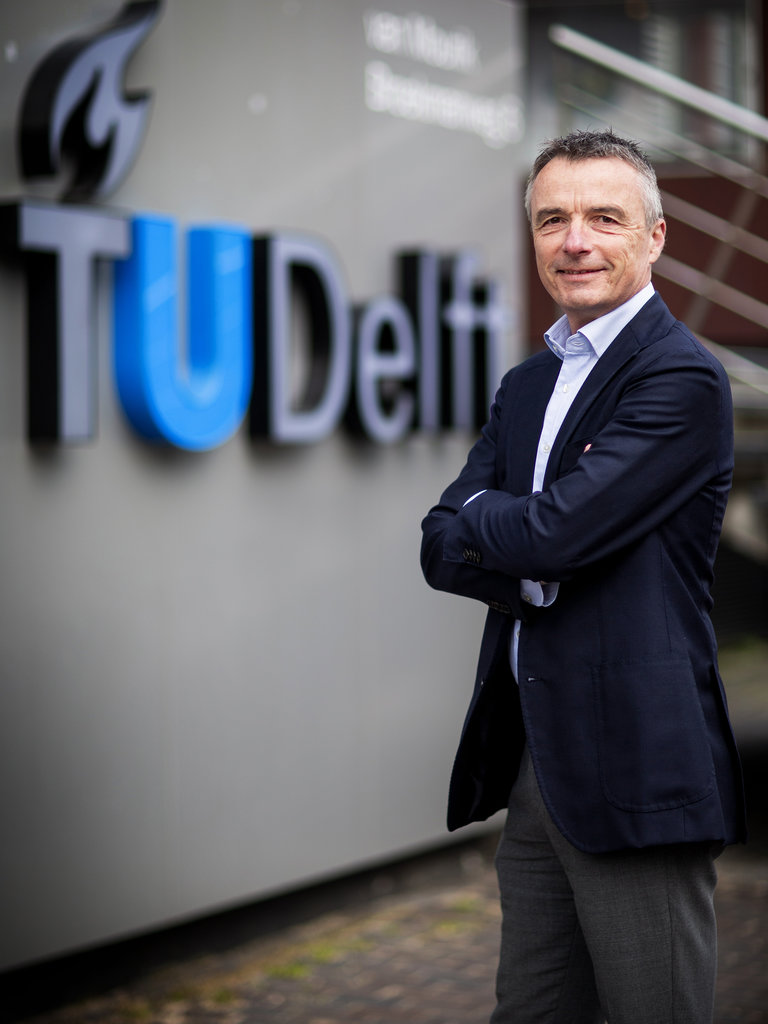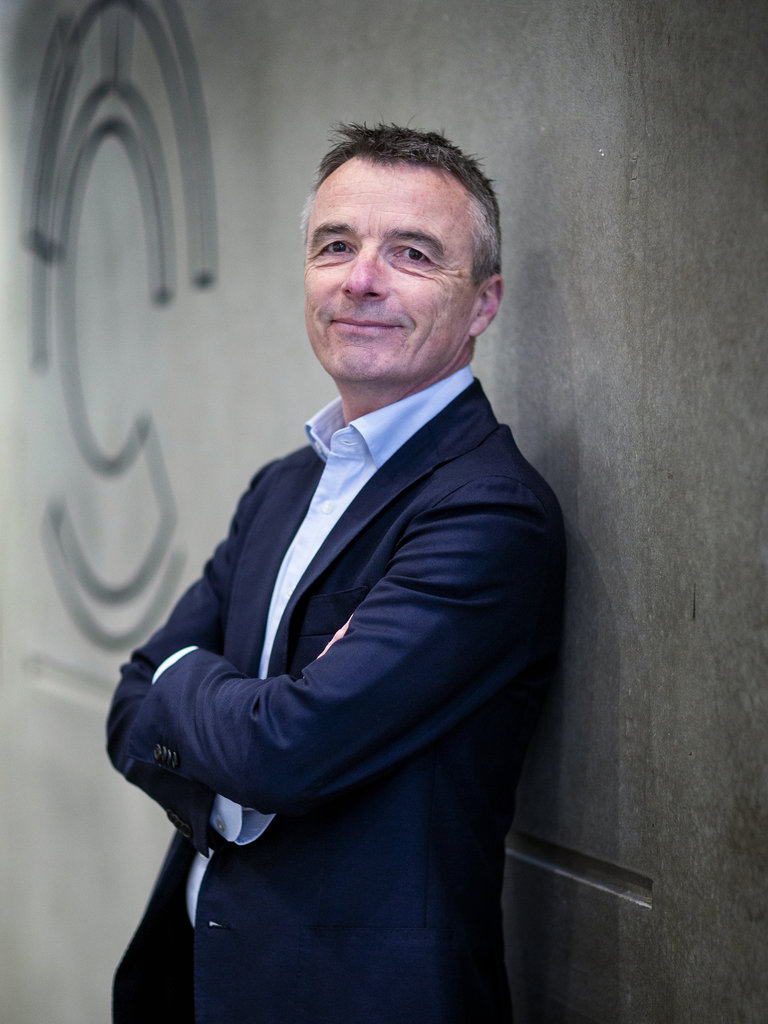
'AI will have an impact on the whole university'
By Jurjen Slump
AI, data and digitalisation are increasingly essential to solving important scientific and social issues. This is why, with its TU Delft AI Initiative, the university is investing heavily in education, research and innovation in the field of AI. Prof. Geert-Jan Houben is coordinating the initiative.
At the end of last year, the Executive Board appointed Houben to the position of Pro Vice Rector Magnificus AI, Data and Digitalisation, tasked with ensuring that TU Delft excels in these fields. He is also spearheading regional, national and international cooperation on this theme.
TU Delft is making serious investments: the budget for AI, data & digitalisation is set to double to €70 million and 24 interdisciplinary AI labs are being established to strengthen AI education across the university by teaming up AI experts and scientists who apply AI in their research and education. There is also cooperation with the business community and TU Delft is working closely with its regional partners and knowledge institutions.
TU Delft has always had a strong reputation in computer science, of which AI is part. Why this boost?
“At TU Delft, we recognise that a great deal is happening in this field, especially when it comes to combining fundamental developments in AI and its application in specific contexts. We intend to actively invest in this, in order to enable cross-fertilisation. AI will have an impact on the whole university: almost all degree programmes, fields of research and areas of application will be affected.”
What distinguishes TU Delft when it comes to AI, data and digitalisation?
“TU Delft is a university of technology with a strong focus on applications. That’s a good starting position for AI, because AI is always applied in a context. Our main interest is the engineering context and how we can apply AI in the various fields in which TU Delft already excels. That distinguishes us from general universities. Of course, the technology itself also needs to be further developed and that’s what we’re good at here at TU Delft.”
Our main interest is the engineering context and how we can apply AI in the various fields in which TU Delft already excels.
Geert-Jan Houben, Pro Vice Rector Magnificus AI, Data and Digitalisation

So, the main focus is on connecting AI experts with scientists who apply AI in their fields?
“Yes, we call this the combination of ‘into AI’ and ‘with AI’. That’s where our strength lies. In this, we are focusing on five strong areas of application: peace, justice and security; ports and maritime; health and care; energy and sustainability, and the technology industry. The 24 labs being established aim to develop new academic education and research in areas where innovations ‘in AI’ come together with specific areas of application ‘with AI’.”
Such as?
“Take the process of designing a building or an aircraft wing – you can use AI to accelerate that. You no longer need to design and test a prototype if you can also simulate those tests using AI. That way, you can really speed up innovation.”
Is the cross-fertilisation limited to TU Delft?
“No, we’re explicitly aiming to work with other knowledge institutions in the region. As part of what we call convergence, we’re working with Erasmus University Rotterdam, Leiden University, Erasmus MC and LUMC on our five themes. Through far-reaching cooperation and by combining ‘in AI’ and ‘with AI’, we aim to achieve pioneering solutions in the fields of for example energy transition, security and health.”
We’re explicitly aiming to work with other knowledge institutions in the region.
Geert-Jan Houben, Pro Vice Rector Magnificus Artificial Intelligence, Data and Digitalisation
How is the business community involved?
“In addition to the 24 AI labs, we have also set up several ICAI labs, in which we’re working with major companies – DSM, Ahold Delhaize, ING – on the development and implementation of AI in specific sectors. The advantage of these labs is that they enable us to work on very concrete applications and to access data sets that are not otherwise available.”
What significance does the AI Initiative have for education?
“Quite a lot. It’s giving education a huge boost and it’s wonderful to see so much enthusiasm, among scientists and students alike, to be involved in the new areas of knowledge emerging from the 24 AI labs. The same applies to the new talent that we’re attracting for the labs. These are people, many of them from abroad, who are demonstrating a lot of curiosity and enthusiasm in their work on the application of AI and data in their fields. That’s invaluable.”
Is society ready for the large-scale application of AI?
“The most important thing is that society deals responsibly with the opportunities offered by AI, data and digitalisation. Context is important here too. Society needs to take time to discover all the applications that are possible. Government can play an important role in this by enabling experimentation which, if properly supervised, will allow us to determine what works and what’s less effective.”
TU Delft has a strong reputation for responsible innovation. How’s that reflected in AI?
“It’s not only the development, but also how it’s used that needs to be responsible. We must ensure that end-users can use AI-driven systems responsibly and that key principles of responsible AI are embedded in the design. We’re devoting a lot of attention to this: it comes up in many of our courses and this approach is a key priority for our researchers.”
TU Delft AI Initiative
- The AI, Data and Digitalisation budget for education and research is being doubled to reach €70 million a year
- The establishment of 24 AI labs is leading to the addition of 120 academics, including 24 tenure track candidates and 96 additional PhD students
- At TU Delft, approximately 700 academics are engaged in fundamental developments ‘into AI’, In addition, there is an approximately equally large and fast-growing group of academics who are engaged ‘with AI’.
- TU Delft is the only Dutch university listed in the Nature 2020 Artificial Intelligence Top 100 Index
